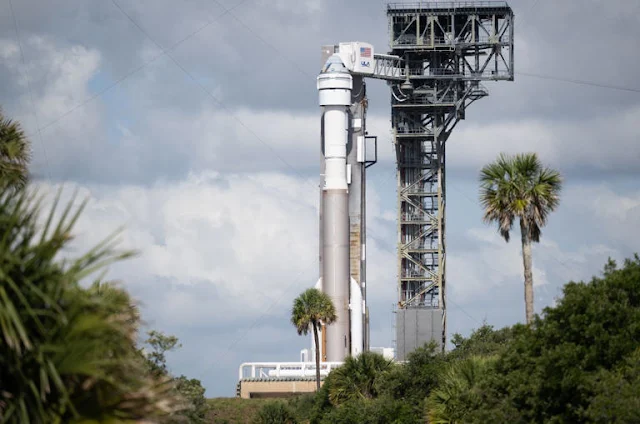The launch of a Boeing spacecraft was delayed on Monday due to concerns about a component on the rocket responsible for propelling it into space.
United Launch Alliance, the rocket company, announced the postponement just two hours before the scheduled launch time for the Starliner vehicle carrying NASA astronauts Barry Wilmore and Sunita Williams to the International Space Station. The launch, which would have been the first crewed flight for Starliner, was set for 10:34 p.m. Eastern time from Cape Canaveral Space Force Station in Florida.
The issue that caused the delay involved an oxygen valve on the Atlas V rocket, used to maintain pressure in a tank holding liquid oxygen, part of the propellant mixture for the vehicle. It's unclear if the launch can be attempted on backup dates, including Tuesday evening and later this week.
Tory Bruno, CEO of ULA, said teams would work overnight to determine if the valve needs replacement. He noted the valve was behaving in a way that violated guidelines for launching Starliner with astronauts on board, unlike a satellite launch where cycling the valve would have sufficed.
Delays are common in space launches, particularly in human missions where safety is paramount. ULA has been preparing Atlas V for crewed missions, a new step as it's previously been used for satellite launches. Starliner, positioned atop Centaur, separates from it in flight, then flies on its own.
Wilmore and Williams returned to crew quarters after the postponement. Boeing, in a joint venture with Lockheed Martin under ULA, has been developing Starliner for crewed missions, aiming to complement SpaceX's successful astronaut transport missions for NASA.

